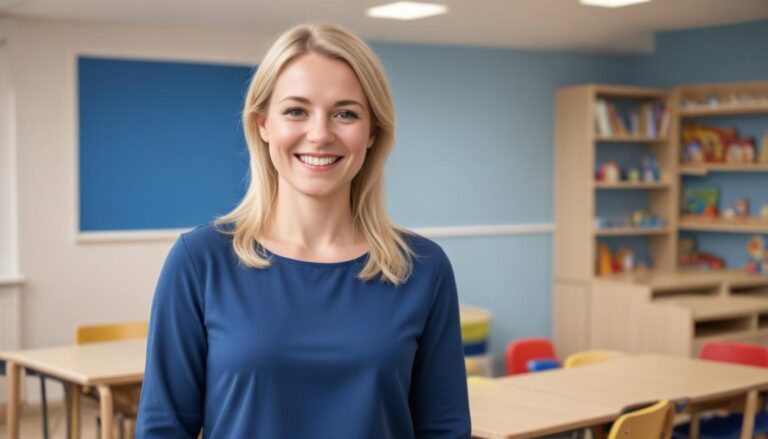
This guide will help you answer 1.1 Identify theories which influence play.
As an Early Years Practitioner, understanding the key theories that influence children’s play is essential. These theories provide a framework for creating a stimulating learning environment and fostering children’s development through play. This unit will explore these theories, offering insight into how they can inform your practice.
The Importance of Play
What is Play?
Play is any activity that is freely chosen, personally directed, and intrinsically motivated. It is essential for children’s development and helps them make sense of the world around them.
Play Theories
Several theories explain how and why children play. These theories provide a foundation for designing activities that support children’s holistic development.
Piaget’s Cognitive Development Theory
Key Concepts
Jean Piaget proposed that children learn through active exploration and interaction with their environment. His theory is divided into four stages:
- Sensorimotor Stage (0-2 years): Learning through physical interaction with objects.
- Preoperational Stage (2-7 years): Development of language and imaginative play, but thinking is egocentric.
- Concrete Operational Stage (7-11 years): Logical thinking develops, and children understand the concept of conservation.
- Formal Operational Stage (11+ years): Abstract thinking and problem-solving skills emerge.
Influence on Play
- Encourage hands-on activities and exploration.
- Support imaginative play, allowing children to use symbols and language.
- Provide opportunities for problem-solving and logical thinking activities.
Vygotsky’s Sociocultural Theory
Key Concepts
Lev Vygotsky emphasised the role of social interactions in cognitive development. His main ideas include:
- Zone of Proximal Development (ZPD): The difference between what a child can do alone and what they can do with help.
- Scaffolding: Providing support to help a child achieve tasks within their ZPD.
Influence on Play
- Create opportunities for cooperative play and social interaction.
- Use guided play where adults or more knowledgeable peers support learning.
- Scaffold activities to help children progress in their development.
Erikson’s Psychosocial Theory
Key Concepts
Erik Erikson proposed eight stages of psychosocial development, each characterised by a specific conflict. The early stages relevant to play include:
- Trust vs. Mistrust (0-1.5 years): Developing trust through consistent and responsive caregiving.
- Autonomy vs. Shame and Doubt (1.5-3 years): Encouraging independence while providing safe boundaries.
- Initiative vs. Guilt (3-5 years): Encouraging initiative and decision-making in play.
Influence on Play
- Foster a secure and trusting environment for exploration.
- Promote independence by allowing children to make choices in their play.
- Encourage initiative by providing opportunities for creative play and role-playing.
Bandura’s Social Learning Theory
Key Concepts
Albert Bandura emphasised the importance of observational learning, imitation, and modelling. Key ideas include:
- Observational Learning: Children learn by watching others.
- Self-Efficacy: Belief in one’s abilities influences participation in activities.
Influence on Play
- Model positive behaviours and play skills for children to imitate.
- Provide opportunities for peer learning and group activities.
- Encourage self-confidence and a sense of achievement through play.
Howard Gardner’s Multiple Intelligences Theory
Key Concepts
Howard Gardner proposed that intelligence is multifaceted and identified nine types of intelligences:
- Linguistic: Sensitivity to language and words.
- Logical-Mathematical: Ability to think logically and solve problems.
- Spatial: Understanding of space and visualisation.
- Bodily-Kinesthetic: Control of bodily movements.
- Musical: Ability to produce and understand music.
- Interpersonal: Ability to interact with others.
- Intrapersonal: Self-awareness and introspection.
- Naturalist: Understanding of the natural world.
- Existential: Sensitivity to deep questions about human existence.
Influence on Play
- Cater to different intelligences by providing a range of play activities.
- Observe and identify children’s predominant intelligences.
- Create an environment that allows children to explore various forms of play.
Psychoanalytic Theories (Freud and Erikson)
Key Concepts
Sigmund Freud and Erik Erikson both had perspectives on play:
- Freud: Play allows children to express feelings and desires.
- Erikson: Play supports psychosocial development.
Influence on Play
- Provide materials for imaginative and symbolic play.
- Allow children to express emotions through role-play and storytelling.
- Understand that play can be therapeutic and support emotional well-being.
Integrating Theories into Practice
Observation and Documentation
- Regularly observe children at play to identify their developmental stages.
- Use observations to inform planning and tailor activities to meet their needs.
Creating a Stimulating Environment
- Design play spaces that encourage exploration and learning.
- Provide a variety of resources that cater to different developmental stages and intelligences.
- Ensure that the environment supports both solitary and social play.
Professional Reflection
- Reflect on your practice and how you incorporate these theories.
- Consider what works well and areas for improvement.
- Engage in continuous professional development to deepen your understanding of play theories.
Collaborating with Families
- Share knowledge of play theories with families.
- Involve families in supporting their children’s development through play.
- Encourage play activities at home that complement those in the setting.
Final Thoughts
Identifying and understanding the theories that influence play is essential for an Early Years Practitioner. These theories provide a foundation for creating meaningful play experiences that support children’s holistic development. By integrating insights from Piaget, Vygotsky, Erikson, Bandura, Gardner, and psychoanalytic theories, you can create a rich and nurturing play environment. Always observe, reflect, and adapt your practice to meet the evolving needs of the children in your care.
Subscribe to Newsletter
Get the latest news and updates from Care Learning and be first to know about our free courses when they launch.






